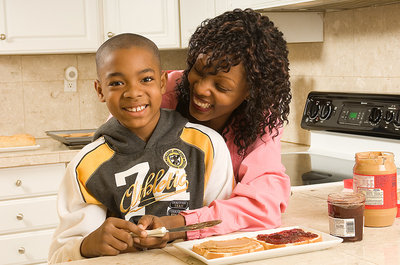Managing behavior is one of the essentials of the ‘good enough’ parent and it is one of the most challenging tasks we will have to face. However, if we want our children to succeed both at school and in life, it is one that we will have to tackle. For our children to be accepted socially, for them to be liked and appreciated and for them to be able to concentrate and learn, they will need to be able to behave properly.
If our children are not disciplined and can’t behave, we will set them up to fail – at a basic level, people will not like their behavior and therefore will avoid playing with them or inviting them round. They will also be unable to gain from and engage in the process of education. 
It is a parental responsibility and duty to keep control of our children and to train them in socially acceptable behavior. However, this is often easier said than done. Society has changed considerably over the last twenty-five years and the whole structure and hierarchy of authority and discipline has altered.
Where there used to be automatic respect for elders, teachers and those in positions of authority in society, such as the police force or the church, this is no longer so. Now, we expect people to earn our respect and be somehow worthy of it. It is easy for ‘authority’ to ‘slip from grace’ as certain parts of the media tend to hound and undermine those in authority roles, given the slightest opportunity or failing.
In the same way, it seems that parental authority, the underlying fabric of society, has in some ways been eroded in the minds of parents, the public and children. The disciplining of children is now increasingly perceived as the role of parents and parents alone rather than something the whole community shares a responsibility in.
In the past, people in the community would feel free to step in and chastise a child if they were behaving in an unacceptable way. Now, we might be arrested for telling off someone else’s offspring! So, although the responsibility and burden of parenting now falls squarely on parental shoulders, parental confidence seems to have hit an all-time low.
Many parents find it difficult to recognise their own authority. They may not fully appreciate that children require expectations and boundaries and the imposition of a certain amount of control in order to develop their own internal self-control and self-discipline in the future. In order for children to feel safe, loved and secure, they need boundaries – an imaginary, but firmly drawn, line that, when crossed, will mean there are consequences to their behavior. However, how do we create these boundaries and controls to raise stable, well-adjusted adults?
While past generations may have used extremely controlling and aggressive methods of disciplining their children, since the sixties parents have sought other ways to raise children. Where spankings, smacking, shouting and punishment were the order of the day for unruly youngsters, we now seek a different pathway. This generation, and the one before it, have sought to give children rights and to make them accept responsibilities through negotiation, compromise and empowerment.
However, the new pathway of communication, negotiation and compromise has proved a difficult path for some parents to cope with. While many parents try their best to avoid smacking and shouting, they don’t really know what to do instead. They are offered little training, sometimes judgement, disapproval and lack of support.
Meanwhile, schools are experiencing more and more children with emotional and behavioral difficulties, children exhibiting anti-social and violent behavior. These children seem to have few if any boundaries to their behavior. They also appear to be inherently unhappy.
Is something going wrong? How can we as parents steer a path through discipline which is not aggressive, controlling or punitive, but is an extension of our legitimate love, care and regard for the well-being of our children? How can we bring about our long-term plan of raising children to be responsible, law-abiding, socially acceptable adults?
What we need is a near mirror reflection of what modern day schools do as organisations and what good teachers do as individuals. Just as there has been a big turn around in disciplinary methods within schools, so there needs to be a development in the way we discipline within the home. We all need a ‘home-behavior policy’. It is a policy or plan to achieve our goal: disciplined children who will grow into self-disciplined adults.
The first thing to remember is that our ‘home-behavior policy’ must be a plan to raise children effectively. Something we create in the best future interests of our children, and not to control them or to confine them. Discipline is part of love, care and compassion for our children, not an obstacle to crush their spirit. Good discipline takes place when we operate within an environment of love, encouragement, praise, acceptance, tolerance and forgiveness (there is a lot of forgiveness necessary in the average family!).











